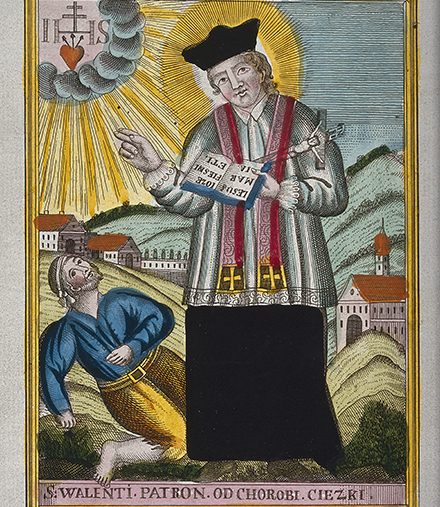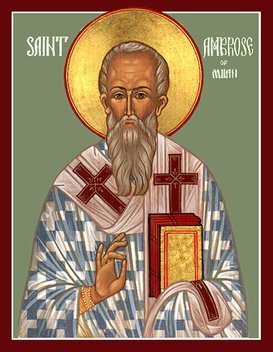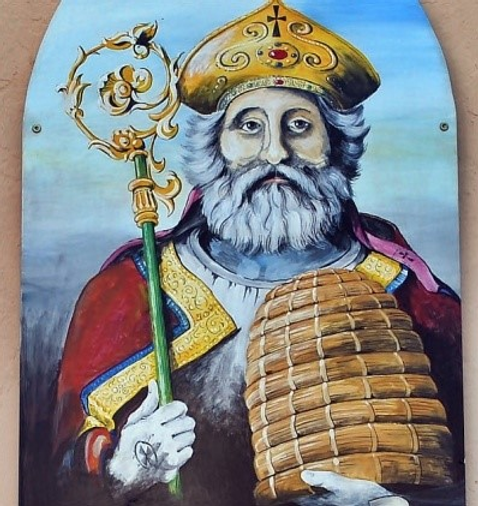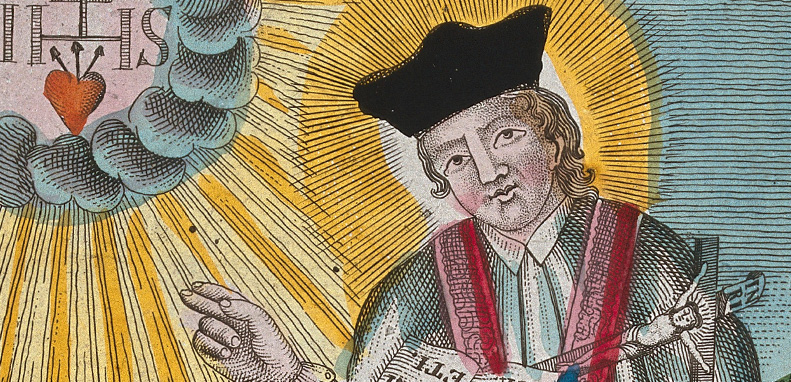
If you’ve ever wondered who the patron saint of beekeepers is, you’re in for a delightful discovery. In this article, we’ll uncover the fascinating story behind the patron saint designated to protect and guide those who tend to our buzzing friends. Prepare to be enlightened as we unravel the mystery and delve into the intriguing world of beekeeping!

Early History of Beekeeping
Beekeeping, or the practice of raising bees for their honey and beeswax, has a fascinating history that dates back thousands of years. As early as ancient times, humans recognized the value and importance of bees and their products. This article will explore the early history of beekeeping, the introduction of Christianity and religious beliefs, the role of saints in Christian beliefs, and specifically focus on Saint Ambrose, the patron saint of beekeepers.
Beekeeping in Ancient Times
Beekeeping can be traced back to ancient civilizations such as the Egyptians, Greeks, and Romans. These civilizations were known for their advancements in agriculture and had a deep appreciation for the natural world. They discovered that by providing suitable hives for the bees and caring for them, they could utilize the honey and beeswax for various purposes.
In ancient Egypt, beekeeping was considered an art form and a highly valued skill. The Egyptians constructed ceramic pots and cylindrical hives made of bundled reeds to house the bees. These hives would often be placed near flowering plants to provide a bountiful food source for the bees.
The Greeks and Romans also had a strong tradition of beekeeping. They developed more sophisticated hive designs, such as straw skeps and wooden boxes. The Greeks, in particular, believed that the gods sent bees as a gift to bring prosperity and fertility to the land. They even had a goddess named Melissa, who was considered the protectress of bees.
Introduction of Christianity and Religious Beliefs
With the introduction of Christianity, new religious beliefs emerged that would both shape and be shaped by beekeeping practices. Christianity brought with it a new understanding of the importance of bees and their symbolism in spiritual contexts. The role of saints, in particular, became significant in Christian beliefs and practices, including in relation to beekeeping.
The Role of Saints in Christian Beliefs
Definition of a Patron Saint
To understand the role of saints in Christian beliefs, it is important to define what a patron saint is. A patron saint is a saint who is chosen as a special protector or intercessor for a specific profession, place, or circumstance. It is believed that these saints have a special connection to the particular area or group they are chosen to protect.
Reasons for Choosing a Patron Saint
The tradition of choosing a patron saint for a specific profession or group stems from the belief that these saints can provide guidance, inspiration, and protection in the chosen field. It is believed that their intercession can bring about blessings and assistance in overcoming challenges or difficulties associated with the profession.
In the case of beekeepers, the choice of a patron saint is particularly significant. Beekeeping is an ancient and revered practice, and having a saint to watch over and guide beekeepers is seen as a way to honor their important role in society and seek spiritual protection for their work.
Saint Ambrose: The Patron Saint of Beekeepers
Life and Contributions of Saint Ambrose
Saint Ambrose, also known as the Honey Tongued Doctor, was a bishop of Milan in the 4th century. He is widely recognized as the patron saint of beekeepers, among other professions and causes. Born into a noble Roman family, Ambrose originally pursued a career in law before becoming a bishop.
Saint Ambrose was known for his pious and virtuous life, as well as his eloquent preaching. He played a crucial role in the conversion of St. Augustine, one of the most influential theologians in Christian history. Saint Ambrose’s teachings and writings had a lasting impact on the early Christian church and continue to be studied and revered today.
Connection to Beekeeping
The association of Saint Ambrose with beekeeping is believed to stem from a story in his life. According to legend, when Saint Ambrose was an infant, a swarm of bees settled on his face without harming him. This was seen as a divine sign of his future eloquence and wisdom. As a result, bees and beehives became symbols of Saint Ambrose and his connection to the natural world.
The connection between Saint Ambrose and bees is further reinforced by his writings, where he used bees and their behavior as a metaphor for the values of the Christian faith. He often pointed to the industriousness, orderliness, and selflessness of bees as qualities to be emulated by Christians.
Bee Symbolism in Christianity
Biblical References to Bees
Bees have a rich symbolic meaning in Christianity, with numerous references in the Bible. In the Old Testament, bees are mentioned in relation to their production of honey, which is often associated with the Promised Land as a land flowing with milk and honey.
In the New Testament, John the Baptist is described as surviving in the wilderness by consuming wild honey and locusts. This implies that the honey produced by the bees was a vital source of sustenance even in the harshest environments.
Spiritual Significance of Bees
The spiritual significance of bees lies in their perceived qualities and behaviors. Bees are known for their diligence, cooperation, and sense of order within the hive. These characteristics are often seen as virtues to be practiced by Christians, such as hard work, community, and obedience to a higher authority.
Bees also symbolize the sweetness of spiritual nourishment and the transformative power of honey. Just as bees transform nectar into honey, Christians are encouraged to transform their lives and hearts through prayer, repentance, and seeking a deeper connection with God.

Devotion to Saint Ambrose Among Beekeepers
Traditions and Rituals
Devotion to Saint Ambrose among beekeepers is not only a religious practice but also a way of honoring and celebrating the profession itself. Beekeepers often engage in various traditions and rituals to express their dedication to Saint Ambrose and seek his intercession.
One common tradition is the annual blessing of the bees. Beekeepers bring their hives to the local church or a designated holy place to be blessed by a priest, invoking the protection and guidance of Saint Ambrose. This ceremony serves as a reminder of the importance of spirituality and thanksgiving in the beekeeping practice.
Prayers and Invocations
Beekeepers also have specific prayers and invocations dedicated to Saint Ambrose. These prayers are recited regularly, asking for Saint Ambrose’s intercession to protect the bees, ensure a bountiful honey harvest, and preserve the health and well-being of both the beekeepers and their bees.
These prayers and invocations not only serve as a way to express devotion to Saint Ambrose but also provide a source of comfort and connection for beekeepers in their daily work. They reinforce the belief that there is a higher power at work in their beekeeping endeavors and that Saint Ambrose is watching over them.
Other Saints Associated with Bees and Beekeepers
While Saint Ambrose is the most well-known patron saint of beekeepers, there are other saints associated with bees and beekeeping in different regions and traditions. Here are a few notable examples:
Saint Gobnait
Saint Gobnait, also known as Ireland’s Beekeeper Saint, is a revered figure in Irish folklore and Christian tradition. She is said to have protected her community from the plague and other disasters with the help of bees. Saint Gobnait is considered the patron saint of bees, beekeepers, and healing.
Saint Valentine
Saint Valentine, the patron saint of love and affection, is also associated with bees. In some traditions, it is believed that the birds and bees’ mating season begins on Valentine’s Day, which has contributed to the association of Saint Valentine with bees and their role in pollination and fertility.
Saint Modomnoc
Saint Modomnoc, an Irish monk from the 6th century, is another patron saint of bees. Legend has it that he cared for bees and had a special bond with them. It is said that he could remove swarms of bees without being stung and used honey for medicinal purposes.

Beekeeping and Religion Today
Importance of Bees in Modern Society
The significance of bees extends beyond religious beliefs and practices. Bees play a vital role in the pollination of flowers and crops, contributing to the sustainability of ecosystems and the global food supply. Their honey and beeswax have various medicinal, nutritional, and industrial applications.
Awareness of the importance of bees has grown in modern society due to concerns about declining bee populations and the impact on biodiversity and agriculture. Efforts are being made to promote responsible beekeeping practices, conserve natural habitats, and reduce the use of harmful pesticides to protect these essential pollinators.
Religious Practices and Beekeeping
In contemporary beekeeping, religious practices and beliefs continue to intersect with the profession. Beekeepers who hold religious beliefs often incorporate prayers, blessings, and rituals into their beekeeping routines. This spiritual connection serves as a reminder of the interconnectedness of nature and the importance of stewardship.
Some religious organizations and communities also support and promote beekeeping initiatives as a way to engage in practical environmental conservation and promote sustainable livelihoods. In this way, religion and beekeeping serve as complementary forces working towards a shared goal of preserving the natural world and maintaining harmonious relationships with all creatures.
The Need for Patron Saints in Different Professions
Historical Examples
Throughout history, patron saints have played a vital role in providing inspiration, guidance, and protection to people involved in various professions and pursuits. From Saint Christopher as the patron saint of travelers to Saint Luke as the patron saint of physicians, these saints have offered solace and support to individuals in their respective fields.
Patron saints are seen as intercessors who understand the unique challenges and joys associated with a specific profession. They provide a source of inspiration and remind individuals of the higher purpose and meaning behind their work.
Contemporary Relevance
In the modern world, the need for patron saints remains relevant. As people face new and evolving challenges in their professions, having a patron saint can bring comfort and guidance. Whether it is a saint associated with a particular occupation, hobby, or cause, these intercessors offer a sense of connection and support in navigating the complexities of contemporary life.
The role of patron saints goes beyond religious belief. Even those who do not follow a specific faith tradition can find solace and inspiration in the stories and symbolism associated with these saints. They serve as reminders of the values and virtues worth aspiring to in various aspects of life.

Role of Patron Saints in Beekeeping Today
Inspiration and Guidance for Beekeepers
For modern beekeepers, Saint Ambrose and other patron saints associated with bees provide inspiration, guidance, and a sense of connectedness to their profession. The metaphorical connection between bees and Christian virtues continues to resonate with beekeepers who strive for qualities such as hard work, cooperation, and harmony in their beekeeping endeavors.
Beekeepers often turn to their patron saint in times of challenges or difficulties. They seek inspiration and reassurance that their work is valued and significant. By invoking the intercession of Saint Ambrose or the other patron saints of bees, beekeepers find comfort in knowing that they are not alone in their efforts to care for the bees and contribute to the greater good.
Promoting the Importance of Bees
Another crucial role that patron saints play in beekeeping today is the promotion of the importance of bees and their conservation. Beekeepers who hold religious beliefs often become ambassadors for bees, educating others about their ecological role and the need for protecting their habitats.
By invoking the patron saints of beekeeping, beekeepers inspire others to acknowledge the sacredness of nature and the responsibility to protect and cherish all creatures, big and small. The spiritual connection to saints associated with bees offers a powerful platform to raise awareness about the threats faced by bees and the urgent need for conservation efforts.
Conclusion
The early history of beekeeping provides a glimpse into the deep reverence and appreciation humans have held for bees and their products since ancient times. With the introduction of Christianity, the role of saints became intertwined with beekeeping practices, culminating in Saint Ambrose as the patron saint of beekeepers.
The symbolism of bees in Christianity, along with the devotion to Saint Ambrose and other saints associated with bees, continue to inspire and guide beekeepers today. Furthermore, the patron saints serve as reminders of the importance of bees for the health of ecosystems and the global food supply.
In conclusion, the role of patron saints in beekeeping and other professions extends far beyond mere religious belief. They offer inspiration, guidance, and a spiritual connection that unites beekeepers in their shared commitment to responsible stewardship of the natural world. As beekeepers continue their vital work, the patron saints of beekeeping provide a source of comfort, encouragement, and inspiration, reminding them of the deeper significance and purpose behind their chosen profession.
